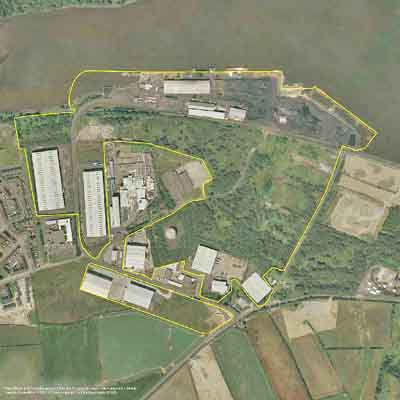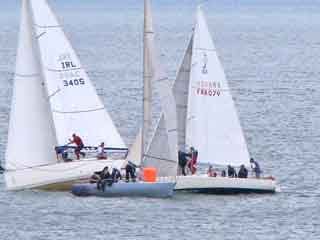Displaying items by tag: Harbour
Greystones Motor Yacht Club
Greystones Motor Yacht Club
Do you own a power boat or a yacht?
Do you moor or berth it elsewhere because of the poor condition of Greystones harbour?
Is it your intention to keep your boat at the new Greystones harbour?
Do you like having fun?
If you have answered ‘yes’ to the above four questions then we have some good news for you. As you will be aware a vibrant new community harbour and marina is to be built at Greystones. We welcome this improvement and all the facilities that are being put in for the existing clubs and for the general public who will be able to enjoy this great addition to our town.
We intend to set up the Greystones Motor Yacht Club. The purpose of this club will be to cater for the needs of both motor boats and yachts. As it stands there is no club for us to join in Greystones so it is our intention to start such a club.
Setting up the Greystones MYC has commenced but will take some time. However if you are interested in becoming a member please register your interest by emailing your details to us.
Greystones Motor Yacht Club, Greystones, Co. Wicklow. Tel: 085 788 9544 or email: [email protected]
or c/o Michael Quinn, 20 Main Street, Bray, Co. Wicklow. Tel: 086 2675382, 01 282 9541, or email: [email protected]
Have we got your club details? Click here to get involved
Londonderry Port and Harbour
Londonderry Port and Harbour
 Londonderry Port is a vibrant and rapidly developing port located in the North West of Ireland. It is a deep water port which is capable of dealing with a full range of customers’ requirements, including our specialist capability in handling bulk cargo.
Londonderry Port is a vibrant and rapidly developing port located in the North West of Ireland. It is a deep water port which is capable of dealing with a full range of customers’ requirements, including our specialist capability in handling bulk cargo.
At Londonderry Port we recognise that one of our unique selling points is our ability to meet the specific needs of each customer. The ability to tailor our arrangements brings a large degree of flexibility and innovation to our business. By doing this, LPHC has developed a strong reputation in the market for delivering on our commitments to our customers.
Our goal is to be the port of first choice for our existing and future customers. We also work hard to address the needs of others who have a stake in our business, such as employees, local authorities, the community and the Government.
About Us
Londonderry Port and Harbour Commissioners manage, maintain and administer the port for the benefit of our stakeholders by placing a strong emphasis on sustainability, and re-investing our profit for growth to benefit future generations. As part of LPHC’s core functions we serve the entire region and promote economic growth and stability – importing over £500m worth of goods into the region last year. LPHC provides a key part of the region’s public infrastructure offering port and marine services to meet our customers’ businesses need.
Our beliefs
The Port has always recognised that it is a service to our customers and must provide fast, efficient operations to meet our clients’ needs. In the last five years LPHC has developed a new fertiliser blending plant and a new oil terminal facility in conjunction with new and existing customers.
Who we support
LPHC actively supports community and economic entrepreneurship in this area, by mentoring and sponsorship of key enterprise and community projects through our work with Business in the Community. Our mentoring support for projects such as the Playhouse Activity Centre, Beautiful Day Bridal, Blueberries Pine helped develop the businesses in the right direction. This has been recognised by BITCNI with an award for supporting economic growth in Northern Ireland.
Find us here
(Details courtesy of Londonderry Port and Harbour Commissioners)
Londonderry Port and Harbour Londonderry Port & Harbour Commissioners, Port Road, Lisahally, Londonderry BT47 6FL. Tel: +044 (0)28 7186 0555, fax: +044 (0)28 7186 1168, email: [email protected]
Courtown Sailing Club
 Courtown Sailing Club is a family orientated and vibrant club where new members are always welcome.
Courtown Sailing Club is a family orientated and vibrant club where new members are always welcome.
Post: Courtown Sailing Club, c/o Aine Stafford, South Pier, Courtown Harbour, Co. Wexford. Tel: 086 80 66 594. Please only call at reasonable hours!
Email: [email protected]
Phone: 087 761 4955 between 19:00 and 21:00 weekday evenings and between 12:00 and 18:00 on weekends
(Above information and image courtesy of Courtown Sailing Club)
Courtown Sailing Club, Courtown Harbour, Gorey, Co. Wexford. Website here.
Have we got your club details? Click here to get involved
Wexford Harbour Boat Club
Facilities include water-skiing, power boating, board sailing and sailing.
Wexford Harbour Boat Club, Redmond Road, Wexford. Tel: +353 53 9122039
Have we got your club details? Click here to get involved





























































